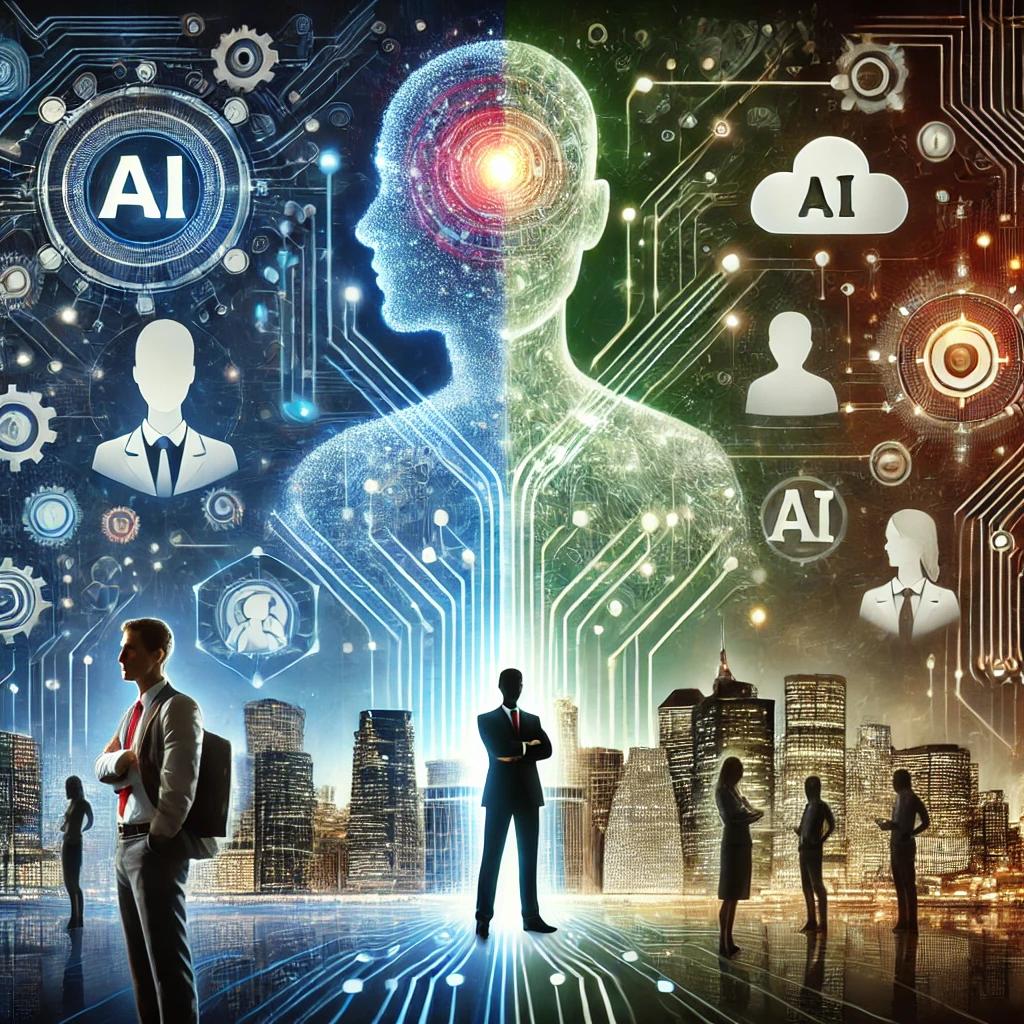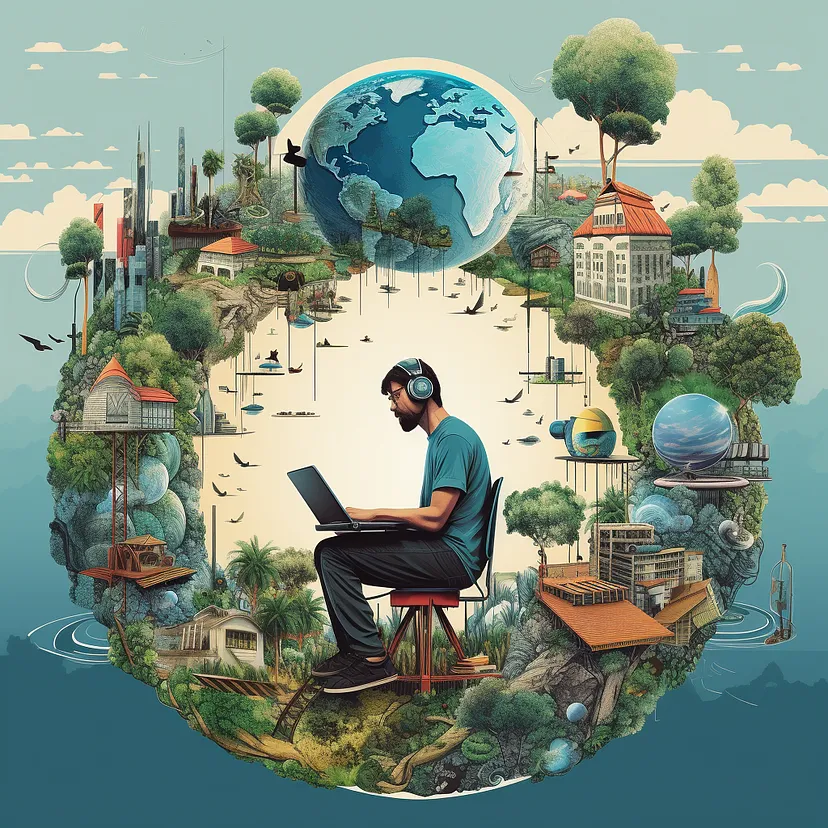Artificial Intelligence (AI) is not only transforming industries but also reshaping the job market. As AI continues to advance, it is creating new opportunities while also challenging traditional roles. Understanding the impact of AI on employment is crucial for anyone navigating today’s rapidly evolving job landscape. In this blog, we explore the current trends, opportunities, and challenges AI presents in the job market.
1. Emerging AI-Centric Roles
As AI technology becomes more sophisticated, new job roles are emerging across various sectors. These roles often require specialized skills in AI, machine learning, and data science. For instance, positions like AI Ethics Officer, Machine Learning Engineer, and Data Scientist are in high demand. Companies like Google AI and Microsoft AI are leading the way in creating these opportunities. If you’re looking to future-proof your career, developing expertise in these areas can open doors to exciting new roles.
2. The Rise of AI in Recruitment
AI is revolutionizing the recruitment process by automating tasks such as resume screening, candidate matching, and even initial interviews. Tools like HireVue use AI to assess candidates’ video interviews, making the hiring process faster and more efficient. While AI streamlines recruitment, it also raises questions about bias and fairness. Job seekers need to be aware of how AI is used in recruitment to better prepare for AI-driven assessments and interviews.
3. Upskilling and Reskilling: Staying Competitive
As AI automates more tasks, the demand for human workers in certain roles may decline. However, this also creates opportunities for upskilling and reskilling. Organizations like Coursera and Udacity offer courses designed to help professionals adapt to the changing job market. By acquiring new skills in AI and related technologies, workers can stay competitive and take advantage of the new opportunities AI brings.
4. The Gig Economy and AI
AI is playing a significant role in the growth of the gig economy. Platforms like Upwork and Fiverr are using AI to match freelancers with projects that suit their skills. This allows freelancers to find work more efficiently and businesses to connect with talent quickly. The flexibility offered by the gig economy, combined with AI-driven platforms, is attracting more professionals to freelance work. However, this also comes with challenges such as job security and benefits, which workers need to consider.
5. Ethical Considerations and Job Displacement
While AI brings numerous benefits, it also poses ethical challenges, particularly in terms of job displacement. According to the World Economic Forum, AI could displace millions of jobs in the coming years, especially in sectors like manufacturing and retail. However, it is also expected to create new jobs that didn’t exist before. The key is to focus on ethical AI development, ensuring that the technology is used to augment human work rather than replace it. Policymakers, businesses, and workers need to collaborate to address these challenges and create a sustainable future of work.
6. AI and Remote Work: The New Frontier
The rise of remote work has been accelerated by AI technologies that facilitate virtual collaboration and productivity. Tools like Slack and Asana use AI to enhance team communication and project management, making remote work more efficient. As remote work continues to grow, AI will play an even greater role in shaping how teams collaborate and deliver results, regardless of their physical location. Companies that leverage AI in their remote work strategies will be better positioned to thrive in this new work environment.
Conclusion
The impact of AI on the job market is profound and far-reaching. By understanding these trends and proactively adapting, individuals and businesses can navigate the challenges and seize the opportunities that AI presents. Whether it’s by embracing new AI-centric roles, leveraging AI in recruitment, or upskilling for the future, staying informed and prepared is key to thriving in the AI-driven job market.
To learn more about how AI is transforming industries and careers, visit narrogen.com. For detailed insights and updates, feel free to explore the resources provided by companies like Google AI and Coursera.




Can you be more specific about the content of your article? After reading it, I still have some doubts. Hope you can help me.
Your article helped me a lot, is there any more related content? Thanks!
I don’t think the title of your article matches the content lol. Just kidding, mainly because I had some doubts after reading the article.
Thank you for your sharing. I am worried that I lack creative ideas. It is your article that makes me full of hope. Thank you. But, I have a question, can you help me?
Can you be more specific about the content of your article? After reading it, I still have some doubts. Hope you can help me.
I don’t think the title of your article matches the content lol. Just kidding, mainly because I had some doubts after reading the article. https://www.binance.com/ar-BH/register?ref=V2H9AFPY
Your point of view caught my eye and was very interesting. Thanks. I have a question for you. https://accounts.binance.com/lv/register-person?ref=B4EPR6J0
I don’t think the title of your article matches the content lol. Just kidding, mainly because I had some doubts after reading the article.
Your article helped me a lot, is there any more related content? Thanks!
I don’t think the title of your article matches the content lol. Just kidding, mainly because I had some doubts after reading the article.
Thanks for sharing. I read many of your blog posts, cool, your blog is very good.
Your point of view caught my eye and was very interesting. Thanks. I have a question for you.
Thanks for sharing. I read many of your blog posts, cool, your blog is very good.
Thanks for sharing. I read many of your blog posts, cool, your blog is very good.
I don’t think the title of your article matches the content lol. Just kidding, mainly because I had some doubts after reading the article.
Thanks for sharing. I read many of your blog posts, cool, your blog is very good.
Thanks for sharing. I read many of your blog posts, cool, your blog is very good.
Your point of view caught my eye and was very interesting. Thanks. I have a question for you.
Your article helped me a lot, is there any more related content? Thanks!
Can you be more specific about the content of your article? After reading it, I still have some doubts. Hope you can help me.
GetResponse is a game-changer for email marketing! It offers powerful automation, user-friendly tools, and excellent deliverability—making campaigns seamless and effective. Plus, their analytics help optimize performance effortlessly. Great news! Now you can get 30% off until April 5th. Perfect time to upgrade or try it out! 🚀 Follow the link.
Thanks for sharing. I read many of your blog posts, cool, your blog is very good.
I don’t think the title of your article matches the content lol. Just kidding, mainly because I had some doubts after reading the article.
Thank you for your sharing. I am worried that I lack creative ideas. It is your article that makes me full of hope. Thank you. But, I have a question, can you help me?
Thanks for sharing this valuable post! Quick heads-up— the cheapest cloud web hosting just dropped its prices even further, but only until April 17th! Snag this unbeatable deal before it’s gone!